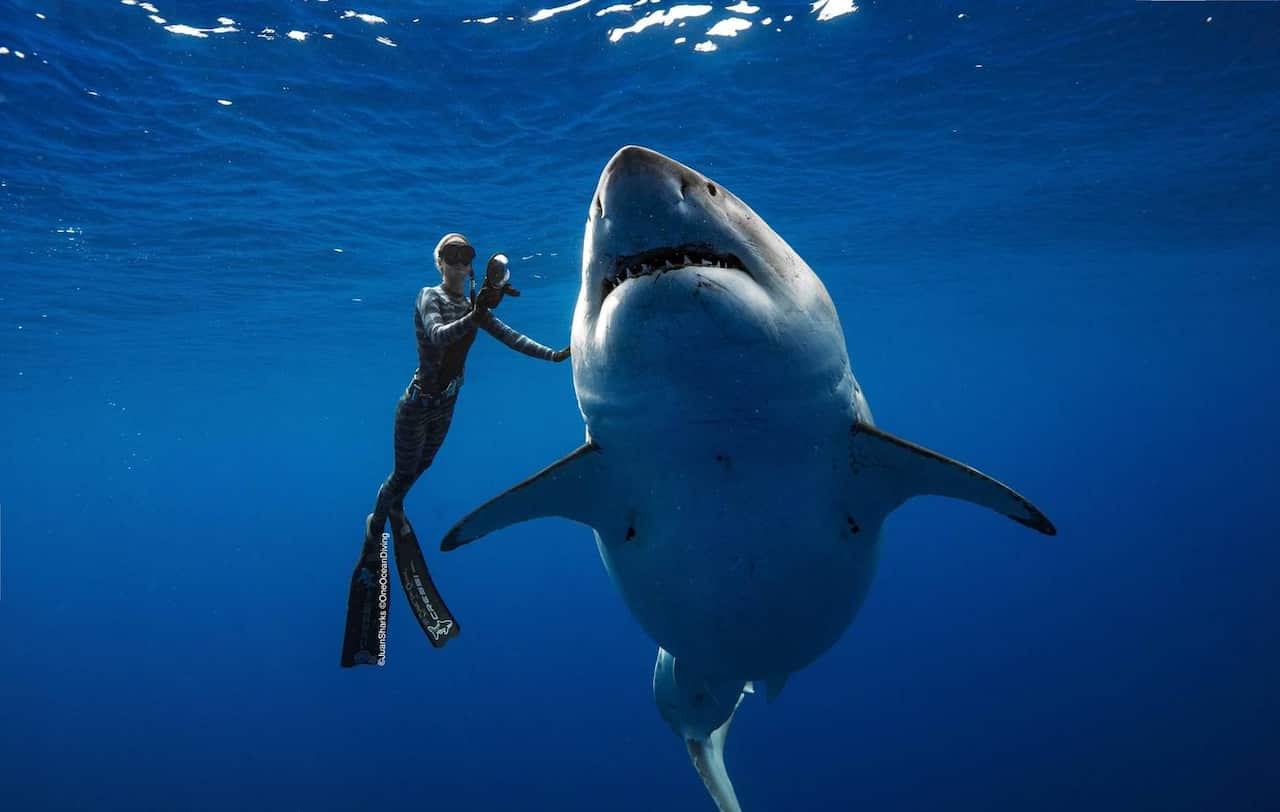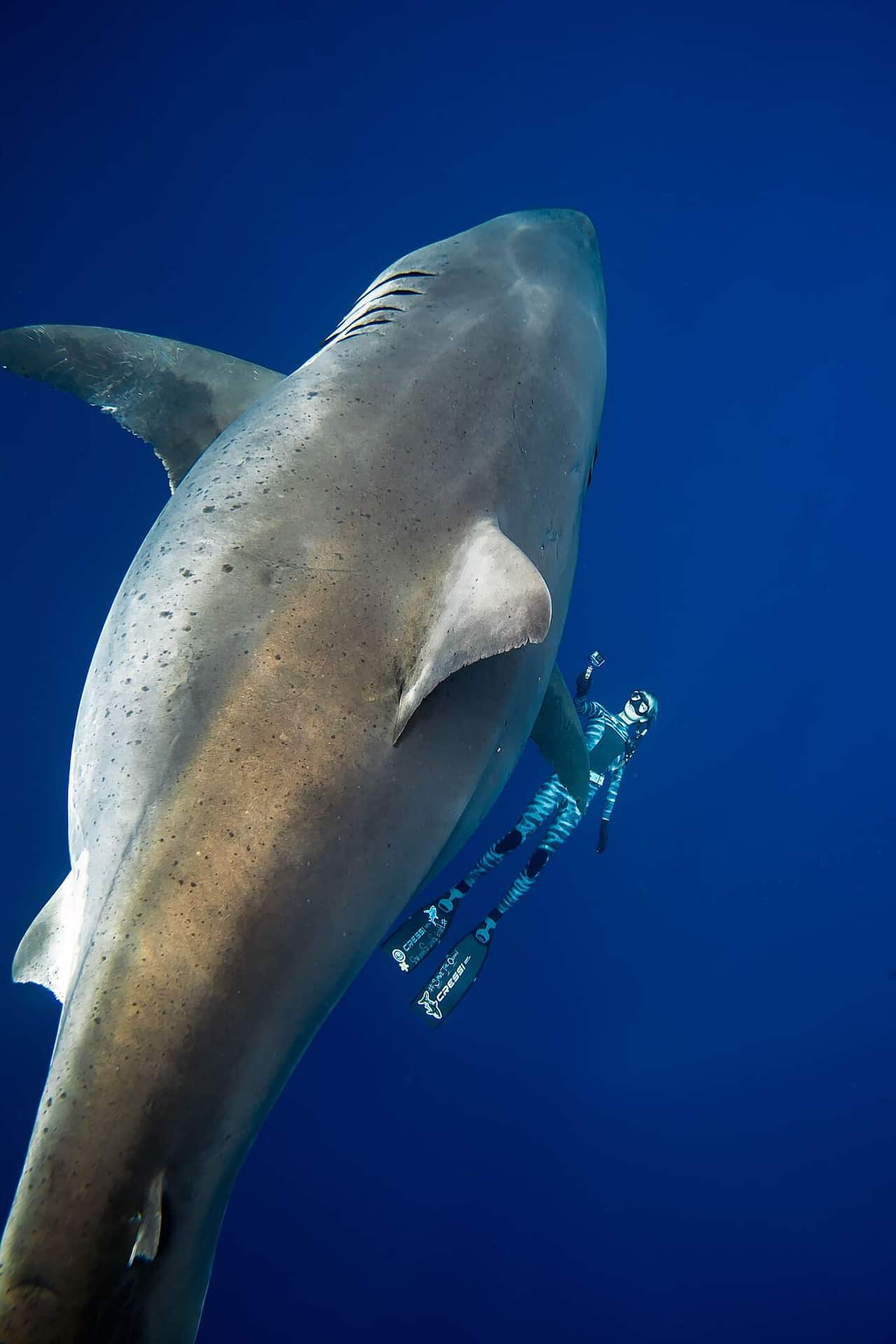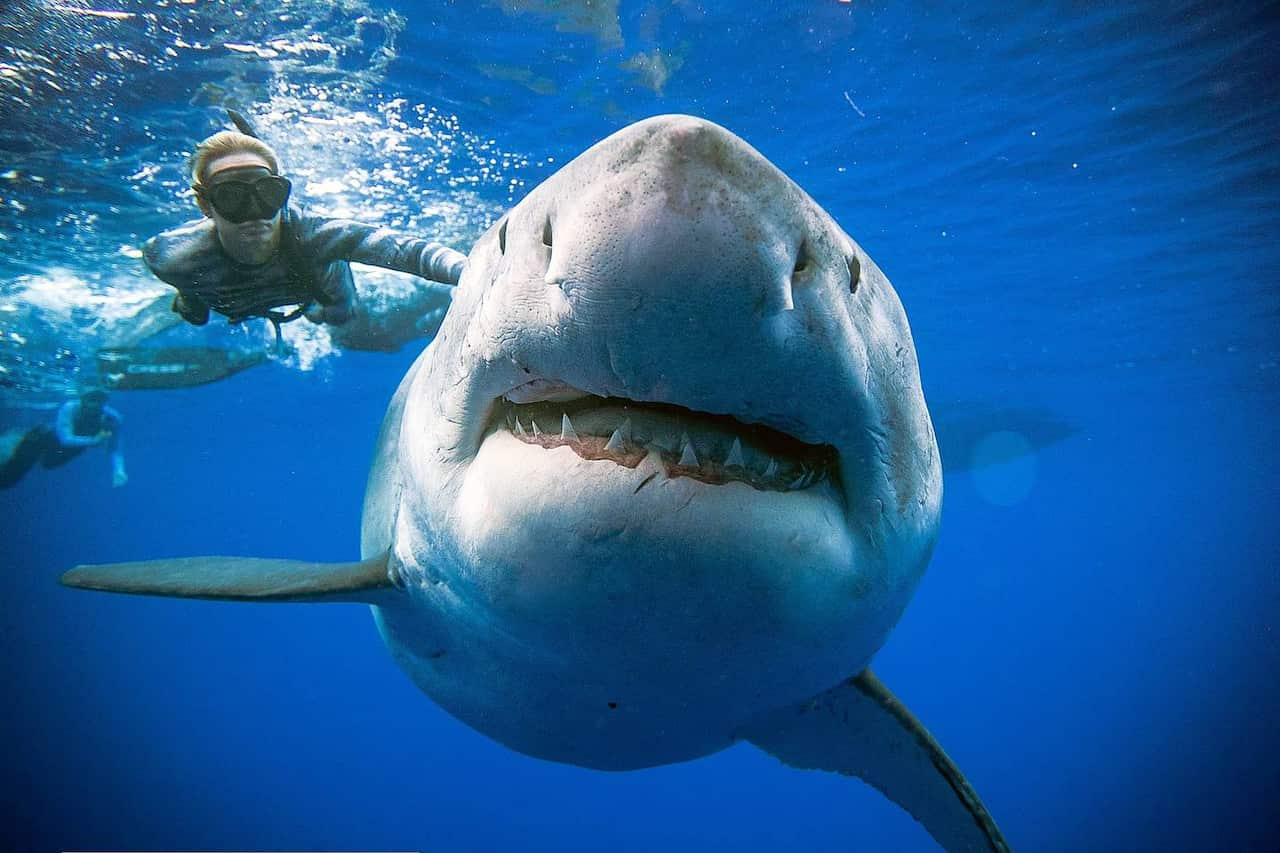A diver has described her close encounter with a giant great white shark as a day she will never forget – but has warned fellow divers to avoid the ‘apex predators’ in the water.
A diving team in Hawaii documented the encounter with one of the biggest great white sharks on record.

Markings seen on the shark suggest it could be one tagged 20 years ago by researchers who called it Deep Blue.
The shark is believed to be almost 50 years old - most great whites live on average around 70 years.
Ocean Ramsey was researching marine wildlife off the South Shore of Hawaii's Oahu island when the six-metre-long shark approached the diving boat.
"It was really special because one, they're so rare in general. And two, to be so rare in Hawaii," she told SBS News.
She said great whites are usually seen in cooler water temperatures, but this female was probably drawn to the area because of the whale carcass her team was documenting.

"She approached us, it was not with any kind of predatory aggression or anything like that. She was just cruising by inspecting things, going right up to the boat," she said.
"It was amazing."
Ms Ramsey said the weight of the shark - an estimated 2.5 tonnes - led her to believe it is a pregnant female.
"These predators are capable of so much, yet it is so rare that they bite a human when you think about how many people go in the water all day every day," she said.
The shark, described as a "gentle grandma" by Ms Ramsey, approached the research team close enough for the conservationist to touch it.
She said she was reading the shark's body language and knew it was okay to touch – but warned against the general public trying anything similar.
"I actually highly discourage anyone from purposely jumping in the water with a great white or a tiger shark. Sharks in general are very highly evolved. That is why there are so few mistaken identity bites," she said.
"But they are apex predators, she was coming close. Again, I work in the water with sharks all day everyday. My masters research was focussed on great whites. So I have a lot of experience with them. But generally they're wild animals and apex predators and we want to give them the space they deserve.
"I was trained to maintain space while also recording and observing her behaviour.
"I look for body language or threat displays - how they communicate with one another to establish a human hierarchy and how they claim their position. So I am looking for these specific types of behaviours and movements and I was actually waiting for her to approach me. For the most part she just more interested in the boat and would swim over to the boat and scratch the boat."
Despite having dived with sharks for 15 years and studied 30 shark species, she said the encounter will stay with her for the rest of her life.
"[I was] comfortable but not complacent because they are apex predators. Not monsters, but not puppies. But she is literally the most gentle kind of grandma great white I have ever met."

Social media users expressed concern about touching the predator.
"I do have concerns for people just jumping in the water. And I do have this split (mixed feelings) about sharing these images because I don't want to share the wrong message. I don't want to see great whites are puppies and you should just jump in and pet them. This is not what this is about," she said.
Studies suggest the global shark population has declined by up to 90 per cent in the past 50 years since large-scale fishing began.
Ms Ramsey said her experience working with sharks has driven home to her how necessary their co-existence is to the health of marine environments.
"They’re like the doctors of the ocean. They pick up the weak, wounded, injured, sick, dead and dying and they keep lower tropic ocean population levels healthy and in balance," she said.
"It is about trying to get people to overcome the fear, but replace that with a healthy level of respect."

